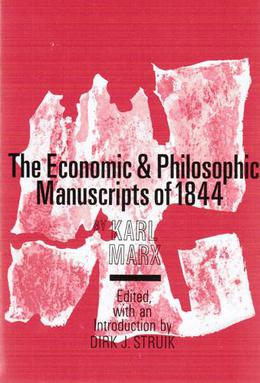Related Research Articles

Industrial sociology, until recently a crucial research area within the field of sociology of work, examines "the direction and implications of trends in technological change, globalization, labour markets, work organization, managerial practices and employment relations" to "the extent to which these trends are intimately related to changing patterns of inequality in modern societies and to the changing experiences of individuals and families", and " the ways in which workers challenge, resist and make their own contributions to the patterning of work and shaping of work institutions".
Feelings are subjective self-contained phenomenal experiences. According to the APA Dictionary of Psychology, a feeling is "a self-contained phenomenal experience"; and feelings are "subjective, evaluative, and independent of the sensations, thoughts, or images evoking them". The term feeling is closely related to, but not the same as, emotion. Feeling may for instance refer to the conscious subjective experience of emotions. The study of subjective experiences is called phenomenology. Psychotherapy generally involves a therapist helping a client understand, articulate, and learn to effectively regulate the client's own feelings, and ultimately to take responsibility for the client's experience of the world. Feelings are sometimes held to be characteristic of embodied consciousness.

Karl Marx's theory of alienation describes the experience of human life as meaningless or the human self as worthless in modern capitalist society. It is Marx’s earliest recognizable attempt at a systematic explanatory theory of capitalism.

Arlie Russell Hochschild is an American professor emeritus of sociology at the University of California, Berkeley and writer. Hochschild has long focused on the human emotions that underlie moral beliefs, practices, and social life generally. She is the author of nine books including, most recently, Strangers in Their Own Land: Anger and Mourning on the American Right, a finalist for the National Book Award. In The Managed Heart (1983), The Second Shift (1989), The Time Bind (1997) and many of her other books, she continues the sociological tradition of C. Wright Mills by drawing links between private troubles and public issues.
Parental alienation is a theorized process through which a child becomes estranged from one parent as the result of the psychological manipulation of another parent. The child's estrangement may manifest itself as fear, disrespect or hostility toward the distant parent, and may extend to additional relatives or parties. The child's estrangement is disproportionate to any acts or conduct attributable to the alienated parent. Parental alienation can occur in any family unit, but is claimed to occur most often within the context of family separation, particularly when legal proceedings are involved, although the participation of professionals such as lawyers, judges and psychologists may also contribute to conflict.
Emotional labor is the process of managing feelings and expressions to fulfill the emotional requirements of a job. More specifically, workers are expected to regulate their personas during interactions with customers, co-workers, clients, and managers. This includes analysis and decision-making in terms of the expression of emotion, whether actually felt or not, as well as its opposite: the suppression of emotions that are felt but not expressed. This is done so as to produce a certain feeling in the customer or client that will allow the company or organization to succeed.

The distancing effect, also translated as alienation effect, is a concept in performing arts credited to German playwright Bertolt Brecht.
Social alienation is a person's feeling of disconnection from a group – whether friends, family, or wider society – to which the individual has an affinity. Such alienation has been described as "a condition in social relationships reflected by (1) a low degree of integration or common values and (2) a high degree of distance or isolation (3a) between individuals, or (3b) between an individual and a group of people in a community or work environment [enumeration added]". It is a sociological concept developed by several classical and contemporary theorists. The concept has many discipline-specific uses and can refer both to a personal psychological state (subjectively) and to a type of social relationship (objectively).

Marxist criminology is one of the schools of criminology. It parallels the work of the structural functionalism school which focuses on what produces stability and continuity in society but, unlike the functionalists, it adopts a predefined political philosophy. As in conflict criminology, it focuses on why things change, identifying the disruptive forces in industrialized societies, and describing how society is divided by power, wealth, prestige, and the perceptions of the world. "The shape and character of the legal system in complex societies can be understood as deriving from the conflicts inherent in the structure of these societies which are stratified economically and politically". It is concerned with the causal relationships between society and crime, i.e. to establish a critical understanding of how the immediate and structural social environment gives rise to crime and criminogenic conditions.
Feeling rules are socially shared norms that influence how people want to try to feel emotions in given social relations. This concept was introduced by sociologist Arlie Russell Hochschild in 1979. Hochschild's 1983 book, The Managed Heart: Commercialization of Human Feeling, discusses feeling rules in greater depth, especially in the occupational worlds of flight attendants and bill collectors. Hochschild draws on the work of sociologist Erving Goffman as well as labor scholar Harry Braverman to discuss the dramaturgical demands and emotional labor entailed by jobs in the service sector, in which workers must "perform" certain roles that entail abiding by certain feeling rules. She notes that women are more likely to have such jobs than men, and that analysis of feeling rules may therefore be especially relevant to understanding the gendered dimensions of labor. This work foreshadows themes from her later analyses of women's work, both paid and unpaid, e.g. in The Commercialization of Intimate Life (2003).
Some Marxists posit what they deem to be Karl Marx's theory of human nature, which they accord an important place in his critique of capitalism, his conception of communism, and his materialist conception of history. Marx does not refer to human nature as such, but to Gattungswesen, which is generally translated as "species-being" or "species-essence". According to a note from Marx in the Manuscripts of 1844, the term is derived from Ludwig Feuerbach's philosophy, in which it refers both to the nature of each human and of humanity as a whole.

The sociology of emotion applies sociological theorems and techniques to the study of human emotions. As sociology emerged primarily as a reaction to the negative effects of modernity, many normative theories deal in some sense with emotion without forming a part of any specific subdiscipline: Karl Marx described capitalism as detrimental to personal 'species-being', Georg Simmel wrote of the deindividualizing tendencies of 'the metropolis', and Max Weber's work dealt with the rationalizing effect of modernity in general.
Emotions in the workplace play a large role in how an entire organization communicates within itself and to the outside world. "Events at work have real emotional impact on participants. The consequences of emotional states in the workplace, both behaviors and attitudes, have substantial significance for individuals, groups, and society". "Positive emotions in the workplace help employees obtain favorable outcomes including achievement, job enrichment and higher quality social context". "Negative emotions, such as fear, anger, stress, hostility, sadness, and guilt, however increase the predictability of workplace deviance,", and how the outside world views the organization.
Policy alienation refers to a framework which examines the experiences of governmental employees with new policies they have to implement. It has been used to describe the experiences of front-line public professionals with new policies. It is defined "as a general cognitive state of psychological disconnection from the policy programme being implemented."
Marxist humanism is an international body of thought and political action rooted in a humanist interpretation of the works of Karl Marx. It is an investigation into "what human nature consists of and what sort of society would be most conducive to human thriving" from a critical perspective rooted in Marxist philosophy. Marxist humanists argue that Marx himself was concerned with investigating similar questions.
In Marxist philosophy, reification is the "conversion of the subject to an object, as when the worker becomes a commodity", or the process by which human social relations are perceived as inherent attributes of the people involved in them, or attributes of some product of the relation, such as a traded commodity.
Classical Marxism is the body of economic, philosophical, and sociological theories expounded by Karl Marx and Friedrich Engels in their works, as contrasted with orthodox Marxism, Marxism–Leninism, and autonomist Marxism which emerged after their deaths. The core concepts of classical Marxism include alienation, base and superstructure, class consciousness, class struggle, exploitation, historical materialism, ideology, revolution; and the forces, means, modes, and relations of production. Marx's political praxis, including his attempt to organize a professional revolutionary body in the First International, often served as an area of debate for subsequent theorists.

The Economic and Philosophic Manuscripts of 1844, also known as the Paris Manuscripts or the 1844 Manuscripts, are a series of notes written between April and August 1844 by Karl Marx. They were compiled and published posthumously in 1932 by the Soviet Union's Marx–Engels–Lenin Institute. They were first published in their original German in Berlin, and there followed a republication in the Soviet Union in 1933, also in German.
Marxist philosophy or Marxist theory are works in philosophy that are strongly influenced by Karl Marx's materialist approach to theory, or works written by Marxists. Marxist philosophy may be broadly divided into Western Marxism, which drew from various sources, and the official philosophy in the Soviet Union, which enforced a rigid reading of Marx called dialectical materialism, in particular during the 1930s. Marxist philosophy is not a strictly defined sub-field of philosophy, because the diverse influence of Marxist theory has extended into fields as varied as aesthetics, ethics, ontology, epistemology, social philosophy, political philosophy, the philosophy of science, and the philosophy of history. The key characteristics of Marxism in philosophy are its materialism and its commitment to political practice as the end goal of all thought. The theory is also about the struggles of the proletariat and their reprimand of the bourgeoisie.

Critique of work or critique of labour is the critique of, and wish to abolish, work as such, and to critique what the critics of works deem wage slavery.
References
- ↑ Merwin, Richard (1970). Alienation from society, self estrangement, and personality characteristics from the MMP1 in normals and schizophrenics. University of Massachusetts Amherst.
- 1 2 3 4 5 Marx, Karl (1844). Economic and Philosophic Manuscripts of 1844 (PDF).
- 1 2 3 Powell, William. "The relationship between feelings of alienation and burnout in social work". Families in Society. 75 (4). ISSN 1044-3894.
- 1 2 3 4 Seeman, Melvin (1959-01-01). "On The Meaning of Alienation". American Sociological Review. 24 (6): 783–791. doi:10.2307/2088565. JSTOR 2088565.
- 1 2 3 Merton, Robert K (1938). "Social Structure and Anomie". American Sociology Review. 3 (5): 672–682. JSTOR 2084686.
- 1 2 Hochschild, Arlie Russell (1983). The Managed Heart - Commercialization of Human Feeling (PDF). ISBN 9780520272941.
- 1 2 "School Alienation: Gender, Socio-economic Status and Anger in High School Adolescents". Kuram Ve Uygulamada Egitim Bilimleri. 6 (3). ISSN 1303-0485.